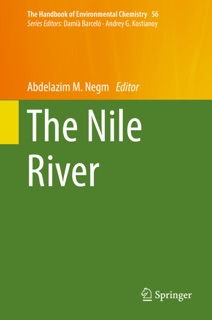This volume offers up-to-date and comprehensive information on various aspects of the Nile River, which is the main source of water in Egypt. The respective chapters examine the Nile journey; the Aswan High Dam Reservoir; morphology and sediment quality of the Nile; threats to biodiversity; fish and fisheries; rain-fed agriculture, rainfall data, and fluctuations in rainfall; the impact of climate change; and hydropolitics and legal aspects. The book closes with a concise summary of the conclusions and recommendations provided in the preceding chapters, and discusses the requirements for the sustainable development of the Nile River and potential ways to transform conflicts into cooperation. Accordingly, it offers an invaluable source of information for researchers, graduate students and policymakers alike.









































